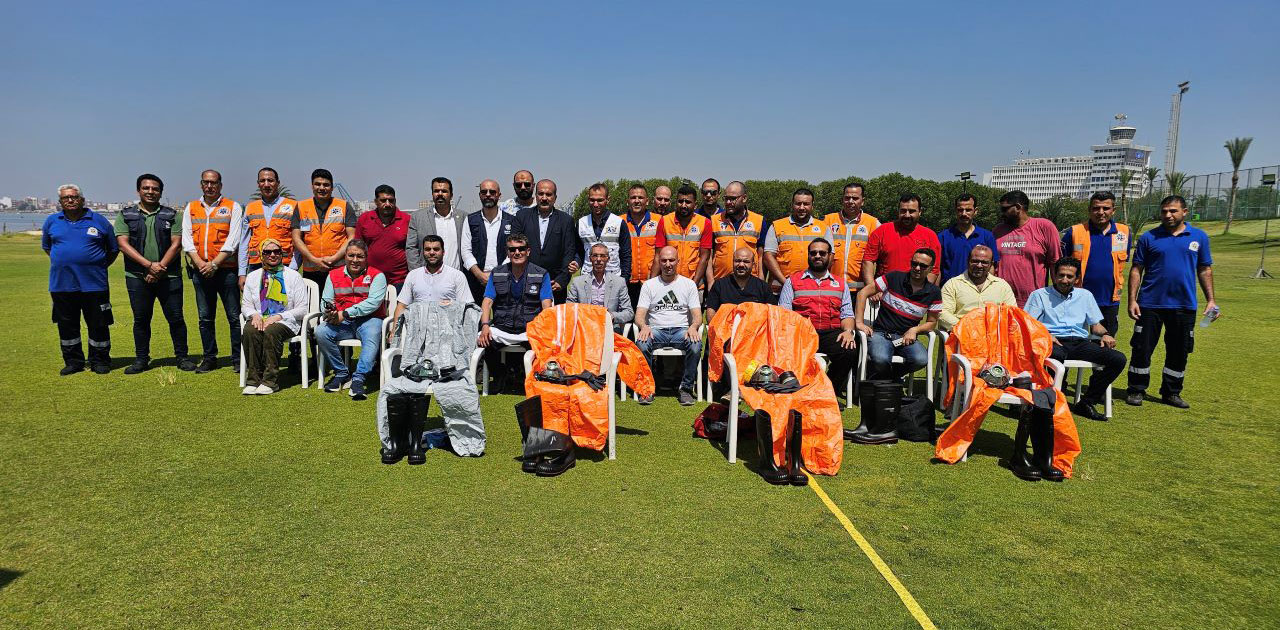
15 September 2024, Cairo, Egypt – Protecting communities from chemical, biological, radiological and nuclear (CBRN) threats requires constant vigilance and preparedness.
In a proactive move, the World Health Organization (WHO) Regional Office for the Eastern Mediterranean, in partnership with the WHO Country Office in Egypt and the Egyptian Ministry of Health and Population, held a series of hands-on training workshops in Ismailia, Egypt with the goal of equipping health care workers and first responders with the skills and knowledge needed to handle CBRN emergencies.
From 23 to 27 June 2024, medical staff from the Egyptian Healthcare Authority and first responders from the Egyptian Ambulance Organization gathered for a series of intensive training sessions, gaining crucial knowledge and skills in:
understanding CBRN emergencies, identifying different types of CBRN threats and their potential impact;
detecting CBRN incident sand recognizing potential signs of a CBRN event, including deliberate attack indicators;
the use of protective gear to avoid exposure;
triage and evacuation, including quickly assessing and prioritizing patients in a crisis; and
decontamination procedures and the safe removal of harmful substances from patients and the environment.
This knowledge was put to the test during a practical simulation exercise during which participants tested the skills they had learned in a controlled environment.
The workshops and drills provided valuable training for those on the front lines of emergency response.
WHO continues to work to strengthen health security in Egypt and across the Eastern Mediterranean Region, helping communities prepare for any challenge, and would like to thank the Government of Japan for their continuous support in ensuring that health care workers are ready to respond to any threat, keeping everyone safe.
The initiative underlined how collaboration and ongoing training are vital to protect us all and served as a reminder that we can and must prepare to respond effectively to all possible threats.


